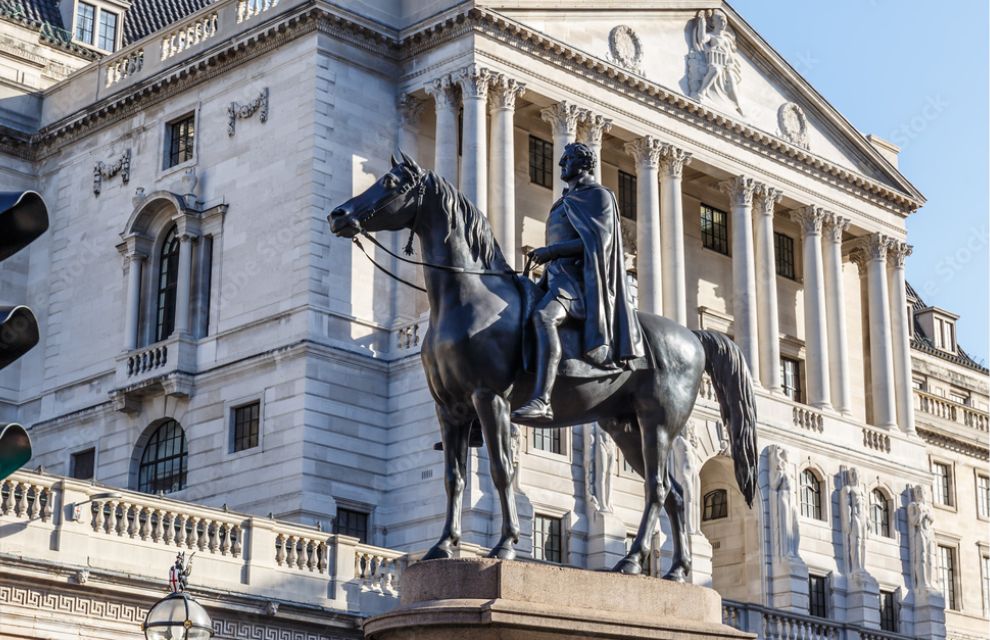Bank of England facilitating climate change, argues Positive Money
29 February 2024 UK
 Image: Alexey Fedorenko
Image: Alexey Fedorenko
London-based think tank Positive Money has published a report arguing that the Bank of England’s (BoE) collateral framework is facilitating the success of fossil fuel companies.
The report alleges that the Bank of England lends public money to banks against collateral through a number of covert schemes, including government bonds and debt issued by corporations.
Positive Money calculated that the bank has allocated £165 billion to lenders since 2014 through one of these schemes, the Indexed Long-Term Repo Facility.
Ellie McLaughlin, senior policy and advocacy officer of Positive Money, argues: “In accepting fossil fuel assets as collateral against its lending, the Bank of England is essentially using the powerful tools at its disposal to provide a hidden subsidy to this sector.
“Not only does this mean public money is being used to prop up an industry detrimental to our future on this planet, but it fails to account for the fact that fossil fuel holdings are likely to become stranded assets – which would leave the public to foot the bill when they become worthless and banks crash the economy again.”
Companies whose bonds are accepted by the Bank include oil and gas producers Shell and TotalEnergies, as well as coal producer BHP Group and mining firm Rio Tinto.
Positive Money argues that the Bank is implicitly subsidising companies that support climate destruction because assets accepted by the Bank are boosted in value. This makes it easier for these companies to raise money for new projects.
The subsidisation of fossil fuel companies contravenes the Bank’s mandate to support the government’s target of reaching net zero by 2050, the report contends.
The report concludes by calling for a revision of the companies included in the Bank of England’s collateral framework.
McLaughlin summarises: “Excluding the most environmentally damaging assets from this lending framework is the only way for the Bank of England to meet its responsibilities of maintaining financial stability and supporting the transition to net zero.”
When questioned on the claims, the Bank of England declined to comment.
The report alleges that the Bank of England lends public money to banks against collateral through a number of covert schemes, including government bonds and debt issued by corporations.
Positive Money calculated that the bank has allocated £165 billion to lenders since 2014 through one of these schemes, the Indexed Long-Term Repo Facility.
Ellie McLaughlin, senior policy and advocacy officer of Positive Money, argues: “In accepting fossil fuel assets as collateral against its lending, the Bank of England is essentially using the powerful tools at its disposal to provide a hidden subsidy to this sector.
“Not only does this mean public money is being used to prop up an industry detrimental to our future on this planet, but it fails to account for the fact that fossil fuel holdings are likely to become stranded assets – which would leave the public to foot the bill when they become worthless and banks crash the economy again.”
Companies whose bonds are accepted by the Bank include oil and gas producers Shell and TotalEnergies, as well as coal producer BHP Group and mining firm Rio Tinto.
Positive Money argues that the Bank is implicitly subsidising companies that support climate destruction because assets accepted by the Bank are boosted in value. This makes it easier for these companies to raise money for new projects.
The subsidisation of fossil fuel companies contravenes the Bank’s mandate to support the government’s target of reaching net zero by 2050, the report contends.
The report concludes by calling for a revision of the companies included in the Bank of England’s collateral framework.
McLaughlin summarises: “Excluding the most environmentally damaging assets from this lending framework is the only way for the Bank of England to meet its responsibilities of maintaining financial stability and supporting the transition to net zero.”
When questioned on the claims, the Bank of England declined to comment.
NO FEE, NO RISK
100% ON RETURNS If you invest in only one securities finance news source this year, make sure it is your free subscription to Securities Finance Times
100% ON RETURNS If you invest in only one securities finance news source this year, make sure it is your free subscription to Securities Finance Times



